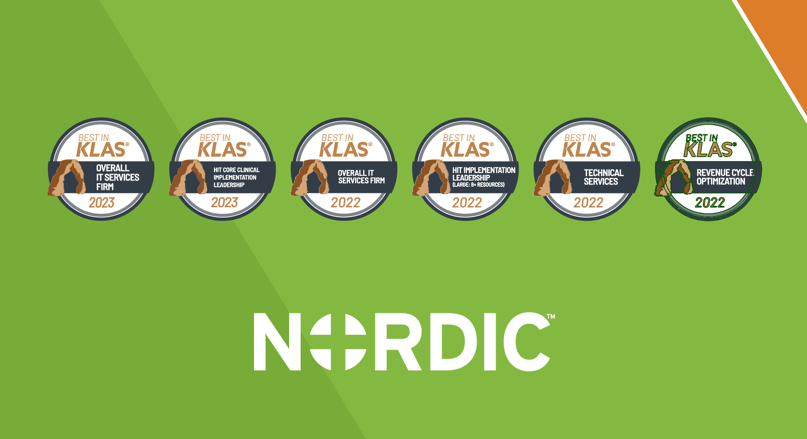At their best, project managers are the natural “coach” of a team. They don’t just keep track of timelines; they actively guide the project toward success by escalating issues when appropriate, managing risk, and helping people do their best work.
But just as a great project manager can make success seem easy, a struggling project manager can exacerbate existing issues. When you have a project manager who struggles to communicate, escalate, and move things along, you can end up severely over-budget or behind on your timelines – often without realizing it.

During my time implementing EHRs, I’ve noticed that project managers tend to struggle in a few key areas. I’ve shared some advice below on how to identify those challenges, grow your skills as a project manager, and ultimately be the best possible resource for your customer and team.
1. The Chicken Little project manager
Have you ever worked with a project manager who always seems to think “the sky is falling”? This type of PM finds it hard to distinguish between a true crisis and the appearance of one. For example, they may take negative feedback as a signal that a major piece of the project needs to change, rather than taking time to investigate whether the feedback is isolated or widespread.
My advice here is to take time to understand the apparent crisis before you escalate it. Nothing will damage your credibility like consistently escalating issues that could be handled with a little bit of communication. Make sure you have the facts on the actual status and you know how serious an issue is before you start sounding the alarm.
It can also help to leverage your best relationships to gauge the seriousness of an issue. Talk to someone you trust and say, “Am I crazy, or should we be concerned about this?” And if the issue truly does need to be escalated, always escalate with a plan in mind to fix it.
2. The relationship expert
Building relationships is a huge part of project management. It helps you facilitate communication between teams, enforce deadlines, and understand when people are struggling or misunderstanding something. But at times, project managers can prioritize relationship-building over the progress of the project.
For example, I’ve seen project managers who have great conversations and build a lot of camaraderie and goodwill with their team but don’t take notes, document conversations, and ensure follow-ups. This can mean that six months down the road, people vaguely remember having a conversation, but nobody has handled next steps or remembers what was agreed to.
I’ve also seen PMs worry a lot about keeping the people they work with happy, which causes them to shy away from tough conversations about project risks and issues. Over time, this often causes projects to go off track, causing additional stress and work for everyone involved.
Relationships are extremely important, but they’re not just about rapport. Often, the best way to build trust long-term is to be the kind of project manager people can rely on to get the job done.
3. The nose-to-the-grindstone planner
The opposite of the relationship expert is the project manager who is extremely focused on the project plan, but doesn’t spend enough time building relationships and having check-ins with their teammates.
This person is usually concentrating on “checking the boxes” at each meeting, rather than taking time to get to know the team, understand individual struggles and difficulties, and step in with suggestions when things are going poorly. When you’re hyper-focused on the day-to-day tasks of your team, it can be easy to miss larger issues – such as teammates who aren’t working well together or someone who truly isn’t understanding the system.
My advice is to regularly allocate time for real conversations with your teammates. If you get to know them as people, you’ll be more likely to notice when they’re misunderstanding each other or struggling with a task. And you’ll be more comfortable jumping in to suggest a change or escalate an issue because you’ll have built enough trust for people to respect your advice.
4. The PM who doesn't trust his or her gut
Often, project management positions take you just outside your comfort zone. Perhaps you’ve never managed a project of a certain size before, or you’re working in an application that isn’t your area of expertise. Even if you’re not an expert on the project, make sure you trust your gut when you sense something isn’t right.
I often see newer project managers think, “This seems off, but I’ve never managed a project like this before – so maybe I’m wrong and everything is fine.” Don’t forget that you have experience and instincts for a reason. If you’re not sure how to escalate a potential issue, you can always say, “I may be wrong here, but this seems worrying to me – does it raise the same concerns for you?” People won’t think less of you for asking proactive, thoughtful questions, even if the issue turns out to be fine.
***
A great project manager is not only a great organizer, but also a great communicator, risk manager, and adapter. That’s why the role isn’t easy, and why it’s not hard to fall into one of the above traps. If you can keep the long-term success of the project in mind – and make decisions that will feed that eventual outcome – you’ll be an indispensable resource to your customer team.
If you’d like to chat about project management or anything related to implementation, please feel free to reach out to me. I’d love to talk.





